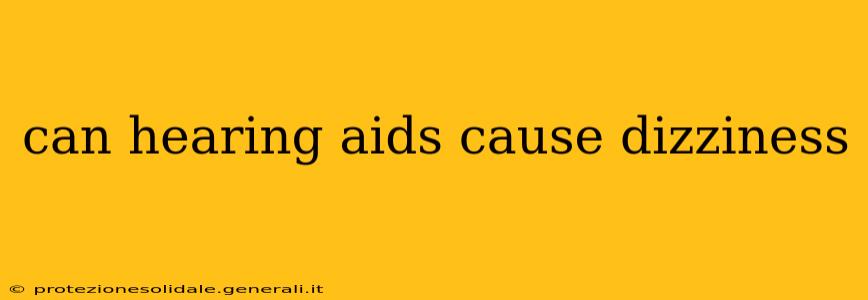Hearing aids are designed to improve hearing, but some users report experiencing dizziness after starting hearing aid use. While this isn't a common side effect, understanding the potential causes and how to mitigate them is crucial for comfortable and successful hearing aid adoption. This comprehensive guide explores the relationship between hearing aids and dizziness, addressing common concerns and providing solutions.
Why Might Hearing Aids Cause Dizziness?
Several factors can contribute to dizziness associated with hearing aid use. It's important to distinguish between true vertigo (a spinning sensation) and feelings of lightheadedness or imbalance.
-
Sudden Sensory Input: For individuals with significant hearing loss, the sudden influx of amplified sounds can overwhelm the brain, leading to feelings of dizziness or disorientation. This is particularly true when first starting to use hearing aids or adjusting the volume settings. The brain needs time to adapt to the new level of auditory input.
-
Ear Infection or Impacted Earwax: Underlying ear problems can cause dizziness independent of the hearing aid. An improperly fitted hearing aid can also exacerbate existing ear infections or trap earwax, contributing to dizziness. Regular ear check-ups are essential.
-
Incorrect Fitting or Device Malfunction: A poorly fitted hearing aid can irritate the ear canal, leading to discomfort and potential dizziness. Similarly, a malfunctioning hearing aid might emit unusual sounds or vibrations that could contribute to feelings of imbalance. Proper professional fitting and regular maintenance are vital.
-
Vestibular System Issues: The vestibular system in the inner ear controls balance. Some individuals with underlying vestibular issues might find that the processing of amplified sound affects their balance, even if the hearing aid is functioning perfectly.
-
Psychological Factors: Anxiety about using a hearing aid, or apprehension about the potential effects on balance, can sometimes manifest as dizziness.
Can Hearing Aids Make You Feel Off Balance?
Yes, some users report feeling off-balance, even if they don't experience the classic spinning sensation of vertigo. This imbalance is often related to the brain's adjustment to the newly amplified sounds. The brain uses auditory input to help maintain balance, and a significant change in this input can temporarily disrupt that process. This feeling usually diminishes as the brain adapts over time.
What to Do if Your Hearing Aid Causes Dizziness
If you experience dizziness when using your hearing aids, consult your audiologist immediately. They can:
- Check for Proper Fitting and Function: Ensure the hearing aid is fitted correctly and functioning optimally.
- Adjust Settings: Fine-tune the amplification levels gradually to allow for a smoother adaptation period.
- Evaluate for Underlying Ear Conditions: Rule out any infections or earwax buildup contributing to the dizziness.
- Recommend Alternative Hearing Aid Styles: Explore different styles of hearing aids to find one that provides comfort and minimizes dizziness.
- Refer to an ENT Specialist: If dizziness persists despite adjustments, referral to an ear, nose, and throat (ENT) specialist may be necessary to assess for underlying medical conditions.
How Long Does it Take to Adjust to Hearing Aids?
The adjustment period varies from person to person. Some individuals adapt quickly, while others may take several weeks or even months. Gradual adjustments in amplification and consistent use are key to minimizing discomfort and maximizing the benefits of hearing aids. Patience and communication with your audiologist are vital.
Is Dizziness a Common Side Effect of Hearing Aids?
Dizziness is not a common side effect of hearing aids, but it's a possibility, especially in the initial adjustment period. Most users successfully adapt without experiencing significant dizziness. Addressing underlying health issues and ensuring a proper fitting significantly reduce the risk.
By understanding the potential causes of dizziness related to hearing aids and proactively addressing concerns with your audiologist, you can maximize the benefits of improved hearing while minimizing potential side effects. Remember, professional guidance is crucial for a successful and comfortable experience.
